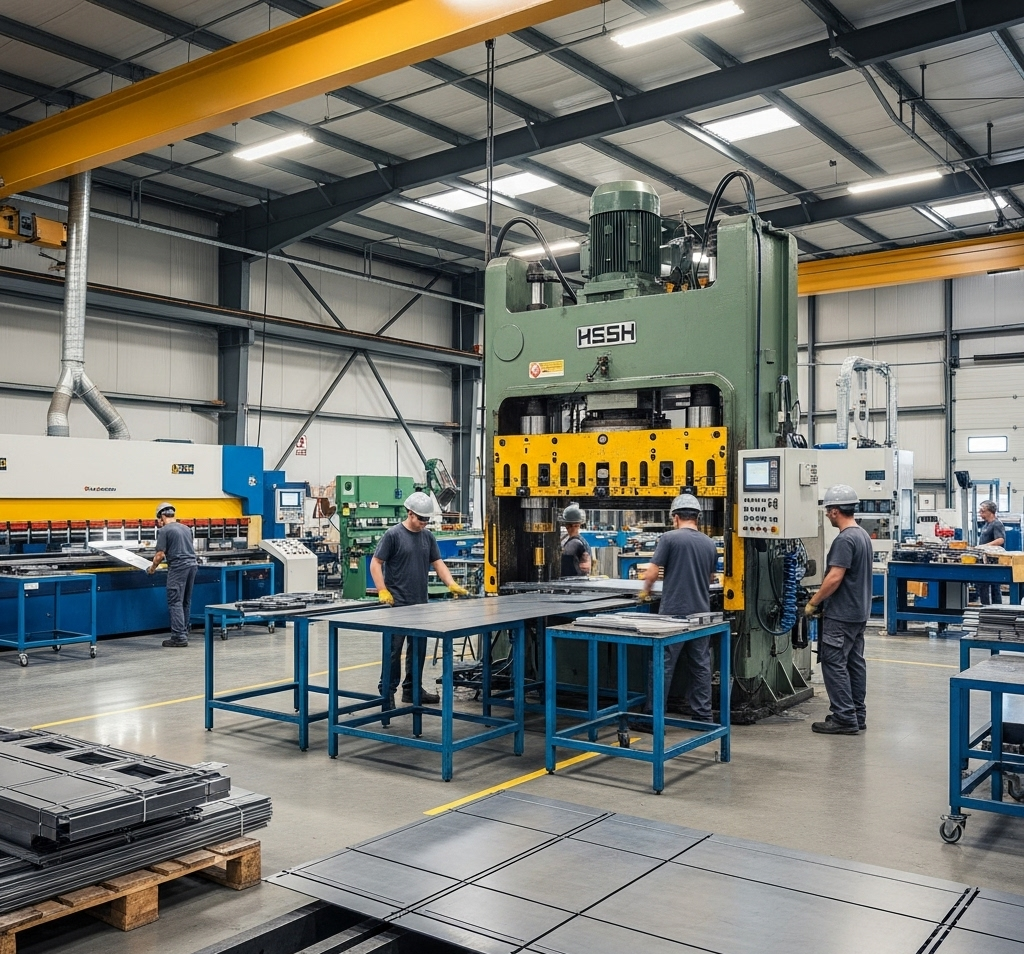
In the fabricated metals industry, where precision, quality, and reliability are paramount, strong supplier relationships can make or break a business. Long-term partnerships with suppliers ensure a steady supply chain, consistent quality, and often, cost efficiencies. However, building these relationships requires strategic effort, trust, and mutual benefit. Below are key strategies to foster enduring supplier relationships in this industry.
Effective communication is the foundation of any successful relationship. In the fabricated metals industry, where specifications and timelines are critical, clarity is non-negotiable.
Set Expectations Early: Clearly define quality standards, delivery schedules, and payment terms in initial agreements. For example, specify tolerances for metal components or delivery windows to avoid misunderstandings.
Maintain Regular Contact: Schedule periodic check-ins, whether through meetings or calls, to discuss performance, upcoming needs, and potential challenges.
Use Technology: Leverage tools like ERP (Enterprise Resource Planning) systems or supplier portals like Lasso to share real-time updates on orders, forecasts, and inventory levels.
Transparent communication builds trust and ensures both parties are aligned on goals.
A supplier relationship thrives when both sides gain value. In the fabricated metals industry, this means balancing cost, quality, and reliability to create a win-win scenario.
Negotiate Fairly: Avoid pushing suppliers for unsustainable pricing that compromises their margins. Instead, aim for pricing that supports quality while ensuring profitability for both parties.
Offer Long-Term Contracts: Providing suppliers with predictable demand through long-term agreements can encourage them to prioritize your needs and invest in capacity or innovation.
Collaborate on Innovation: Work together on process improvements, such as optimizing material use or adopting new fabrication techniques, to reduce costs and enhance efficiency.
When suppliers see you as a partner invested in their success, they’re more likely to go the extra mile.
Trust is earned through consistent actions. In an industry where delays or quality issues can disrupt production, reliability is a cornerstone of strong supplier relationships.
Pay on Time: Timely payments signal respect and financial stability, encouraging suppliers to prioritize your orders.
Honor Commitments: Stick to agreed-upon order volumes and schedules. Frequent last-minute changes can strain relationships and disrupt supplier operations.
Provide Feedback: Share constructive feedback on supplier performance and acknowledge their successes. This fosters a culture of continuous improvement.
Reliability creates a dependable partnership that suppliers value, especially in the high-stakes fabricated metals sector.
Supporting your suppliers’ growth can strengthen the relationship and improve their ability to meet your needs.
Offer Training or Resources: If a supplier struggles with specific processes, such as meeting tight tolerances for precision parts, consider sharing expertise or co-investing in training.
Conduct Joint Planning: Involve key suppliers in your strategic planning to align their capabilities with your long-term goals, such as expanding into new markets or adopting advanced materials.
Visit Their Facilities: Regular site visits demonstrate commitment and provide insight into their operations, helping you identify areas for mutual improvement.
Investing in your suppliers’ success builds loyalty and enhances their capacity to deliver.
While long-term relationships are valuable, over-reliance on a single supplier can be risky in the fabricated metals industry, where supply chain disruptions (e.g., raw material shortages) are common.
Maintain a Balanced Portfolio: Work with multiple suppliers for critical components to avoid bottlenecks while still fostering strong relationships with each.
Monitor Market Trends: Stay informed about global metal prices, tariffs, or geopolitical factors that could impact suppliers, and discuss contingency plans proactively.
Build Strategic Partnerships: Identify a few key suppliers for deeper collaboration while maintaining secondary sources for resilience.
Diversification ensures stability without sacrificing the benefits of long-term partnerships.
Treating suppliers as partners rather than vendors creates a collaborative environment that drives long-term success.
Recognize Their Expertise: Suppliers often have deep knowledge of materials, processes, or market trends. Tap into their insights for mutual benefit, such as selecting cost-effective alloys or improving production techniques.
Resolve Conflicts Constructively: Address issues like late deliveries or quality concerns through open dialogue rather than blame, focusing on solutions that strengthen the partnership.
Celebrate Milestones: Acknowledge long-term partnerships with gestures like supplier awards or joint events, reinforcing the relationship’s value.
A culture of respect encourages suppliers to prioritize your business and invest in the relationship.
Building long-term supplier relationships in the fabricated metals industry requires a strategic blend of communication, trust, and collaboration. By prioritizing mutual benefit, reliability, and supplier development, businesses can create partnerships that withstand market challenges and drive success. In an industry where precision and dependability are critical, strong supplier relationships are not just an advantage—they’re a necessity.
© 2025 Lasso Supply Chain Software LLC
Get instant access to our report on the Top Procurement Trends of 2025 by filling out the form below.

Get instant access to our report on the Top Procurement Trends of 2025.